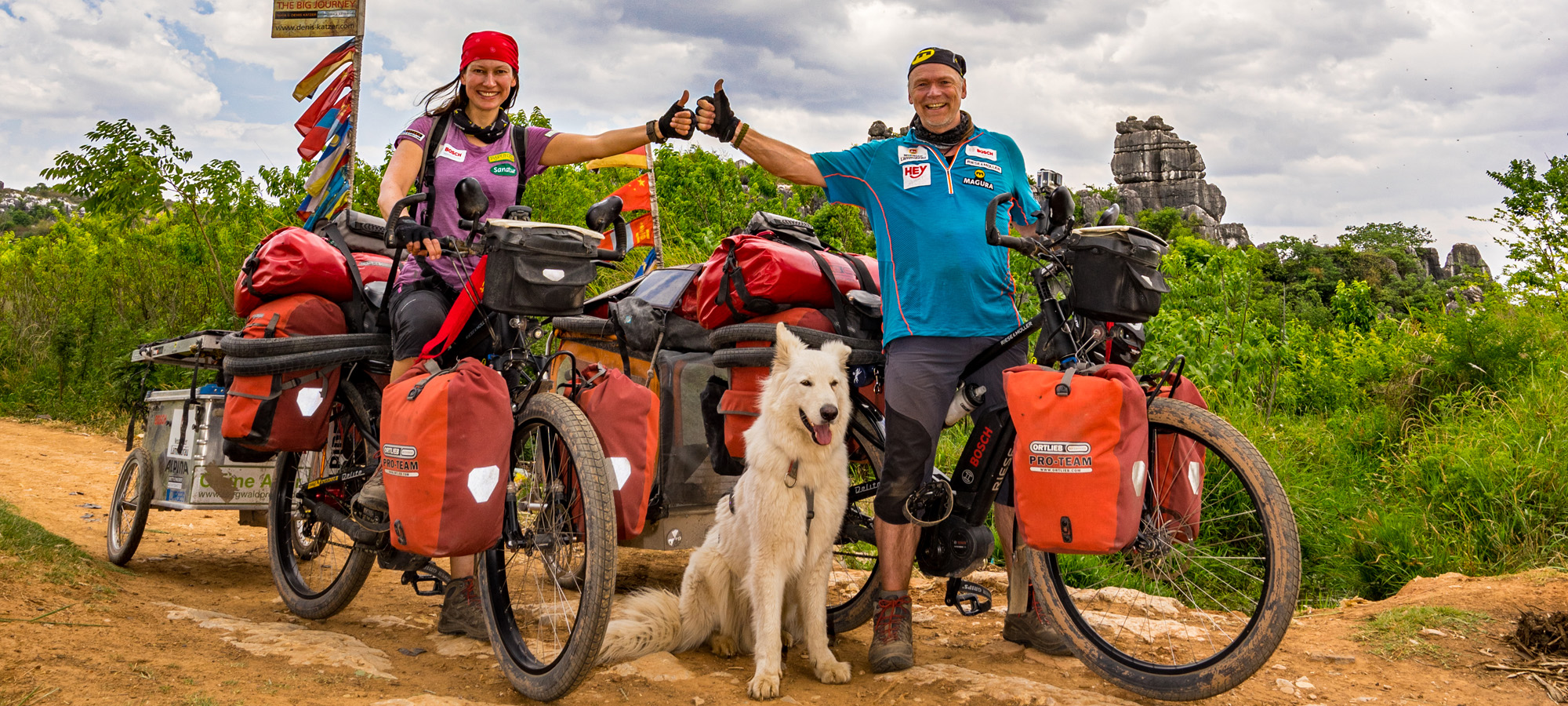
Fog and desolation
N 45°36'45.6'' E 038°57'31.4''“Let’s put on the high-visibility vests,” Tanja suggests, because heavy fog impairs visibility. We stop and take the orange vests out of the front pocket. Then it continues at an average of ten meters below sea level. “It feels much safer,” exclaims Tanja because we can now be seen from afar thanks to the signal color. Trucks creep out of the gloom, getting louder and louder before thundering past us. With very few exceptions, the cars and trucks overtake us at a great distance, so that we hardly feel threatened. At 18 degrees, it is a relatively cool morning. The high humidity wraps itself around us like a clinging cloak. Then a light wind comes up. From the front, of course. The fog disappears in a flash as if it had never been there. The impressive beauty of the coasts of the Black Sea and the Sea of Azov has disappeared. The planned economy is ruining the image of the earth. Nothing is left to nature. Everything, but also everything has been designed on the drawing board with the scale. Rivers are straightened and cross the road, which is also straight as a die. Fields stretch along the left and right of the road to an extent that can hardly be described. Every now and then, a few beech trees stand scattered between the fields like tin soldiers. Agricultural machinery works the maltreated soil. Most of the crops have been harvested. Time and again we are overtaken by trucks whose loading areas are full to bursting with apples, white cabbage, sugar beet and other agricultural produce. Sometimes hundreds of chickens huddle together to protect themselves from the cold wind on the loading ramp of a small truck. I can also see the big pink ears of pigs fluttering past us in the wind. “Poor creatures,” I think aloud and am glad not to be exposed to the cool wind on one of the loudly rumbling loading areas, only to end up in one of the slaughterhouses. It’s good to be human. Most of the time at least.
My thighs make a real effort to push the bike, the body sitting on it and the equipment into the wind. I’m sweating like a stallion. Today I have the feeling that the two pounding power stations beneath me are about to burst. They have bloated and send unmistakable signals to my brain. “Quiet man! Give us a break again!” “I’d love to, but we need a suitable place for that,” I reply. “Never mind, any space is good for us if we don’t have to pedal your bike all the time. Give us a short break,” they object. Now, after seven days in the saddle, I can understand my legs. We find a nice little gastinitsa in the town of Timashevsk. “That would be a good place for your notes,” Tanja suggests. I look at her in surprise. “Did your thighs complain too?” I say with a laugh. When we ask if we can have the room longer, the woman at reception shakes her head. “Why not?” “If you want to stay longer than two nights, you have to register with the registration authority.” “Registration authority? What’s that?” I ask, puzzled. “You’ll find the office in the city. Bring me the papers and you can stay longer,” says the woman sitting in the small glass box quite sternly. Tanja and look at us in surprise. “Is it customary in Russia for travelers to have to register?” I wonder. “Who knows, but we should give it a try,” Tanja suggests.

